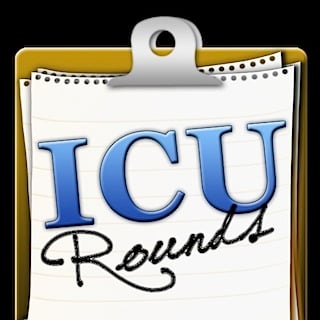Therapeutic Hypothermia After Cardiac Arrest
ICU Rounds
Jeffrey Guy
4.8 • 686 Ratings
🗓️ 21 October 2010
⏱️ 34 minutes
🧾️ Download transcript
Summary
Therapeutic hypothermia after cardiac arrest is part of ACLS and is used by several EMS agencies around the US. Despite good data and improved patient outcomes, many providers fail to used this modality. This podcast will focus on a presentation of the data, methods of cooling, and potential complications.
Transcript
Click on a timestamp to play from that location
| 0:00.0 | Welcome back to the podcast. The topic for discussion today is that of therapeutic hypothermia. |
| 0:23.9 | Now, therapeutic hypothermia is part of our resuscitation science. And people who have had cardiac arrest of various types of which we're going to talk about today have had improved neurological recovery with use of therapeutic hypothermia. So today we're going to talk about today have had improved neurological recovery with use of |
| 0:38.9 | therapeutic hypothermia. So today we're going to talk about what is therapeutic hypothermia, |
| 0:43.2 | how do we do it, and who benefits from it? And the idea that needs to be kept in mind is that this |
| 0:48.5 | is not some star-tracky kind of science here. This is science that has been validated by peer-reviewed literature. |
| 0:58.1 | And furthermore, it's an element that is considered part of advanced cardiac life support. |
| 1:03.9 | Several years ago, New York City EMS made an announcement that they were only going to transport |
| 1:09.5 | patients after cardiac arrest to hospitals that did therapeutic hypothermia. |
| 1:14.8 | One of the strategies that I'll sometimes do while doing a presentation with a PowerPoint kind of deal in an auditorium is put the references up there. |
| 1:24.0 | And if this is 2010, include references from, say, the year 2000. Some might look at that |
| 1:30.1 | and say, well, your references are somewhat dated. The other technique that you can use with that |
| 1:35.5 | is making the point that the topic of what we're discussing is not something new. This is something |
| 1:42.1 | that has been around for quite some time, but for whatever |
| 1:45.4 | reason, we've been slow to adopt. Despite publications of two randomized controlled trials of |
| 1:51.1 | therapeutic hypothermia after cardiac arrest, demonstrating a clear neurological outcome and an |
| 1:57.4 | improvement in mortality over a decade ago, use of therapeutic hypothermia after cardiopulmonary |
| 2:03.4 | ascitation remains low. In the case of pre-hospital cardiac arrest, it's estimated between |
| 2:10.1 | 265,000 and 325,000 cases of out-of-hospital or pre-hospital cardiac arrest occur annually in the United States. |
| 2:20.9 | Of this number, only 6% of patients survived to discharge, and there's a marked variation in rates of survival between various institutions. |
| 2:30.2 | Any provider who has provided advanced cardiac life support or cardiopulmonary |
| 2:35.5 | or association of a patient and has been able to render a survival is always very concerned |
| 2:43.0 | about what the unknown neurological recovery of the patient is. |
... |
Transcript will be available on the free plan in -5274 days. Upgrade to see the full transcript now.
Disclaimer: The podcast and artwork embedded on this page are from Jeffrey Guy, and are the property of its owner and not affiliated with or endorsed by Tapesearch.
Generated transcripts are the property of Jeffrey Guy and are distributed freely under the Fair Use doctrine. Transcripts generated by Tapesearch are not guaranteed to be accurate.
Copyright © Tapesearch 2025.

